Special report: Helping Calderdale’s addicts on the road to recovery
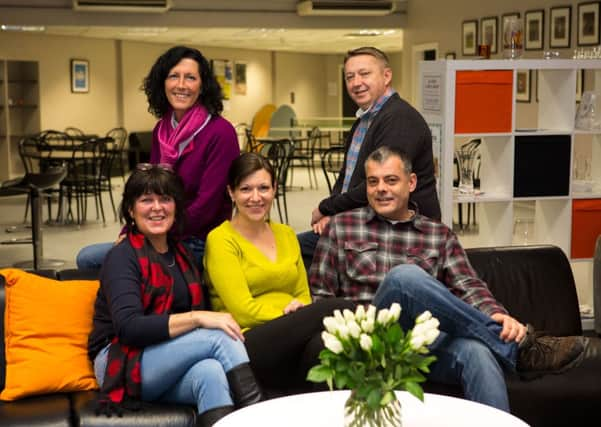

Calderdale Council spends £3.4 million annually on drug prevention and treatment - the biggest expenditure in the council’s public health budget.
“It’s easy to stereotype people when they are suffering with addiction, but you have to realise that there are a lot of factors that play into addiction,” says Dean Wallace, public health consultant at Calderdale Council.
Advertisement
Hide AdAdvertisement
Hide Ad“People don’t choose to be in this position, but that’s where they are - it’s our job as Public Health to try and change that.
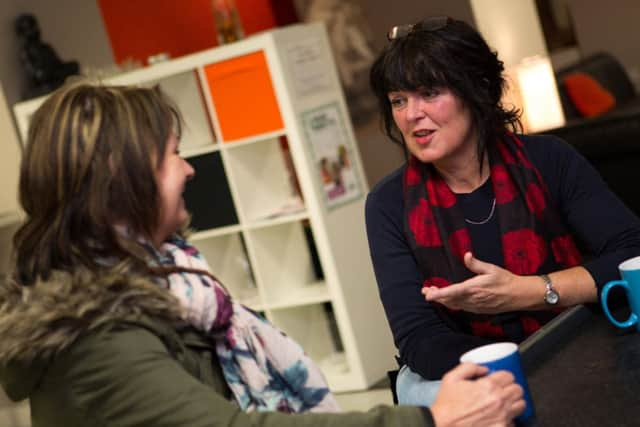

“Instead of referring to people as a drain on society, we try and find ways for people to make a positive contribution,” he says.
“For every pound we invest, we know from national research that the benefit is four to five pounds - if we don’t do anything, it ends up being ten times the cost.”
People often misuse drugs and alcohol when their lives are chaotic and they feel like they have very little control of their environment.
Advertisement
Hide AdAdvertisement
Hide AdThere can be a complex range of issues including homelessness, isolation, mental and physical illness, unemployment, abuse and trauma that can lead to drug and alcohol misuse.
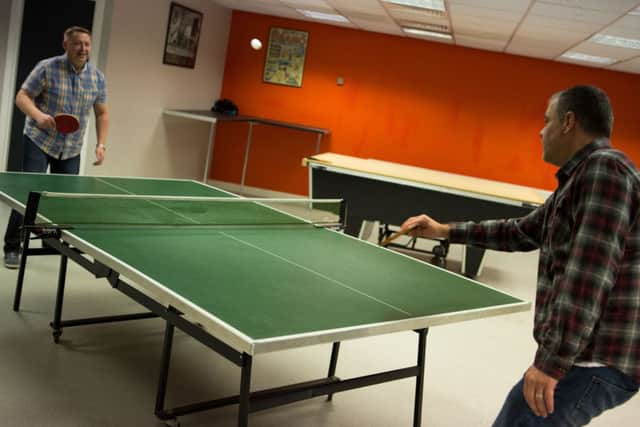

“They often feel they need something, whether its smoking, drugs or alcohol, and they seek solace in that,” says Dean
“As Public Health, we have sophisticated ways of dealing with a multitude of issues that can’t be dealt with by giving someone a single service.
“The aim is that people will ultimately recover and become fully-functioning members of society,” he says.
Advertisement
Hide AdAdvertisement
Hide AdBut addiction can occur without the misuse of alcohol or illicit drugs.
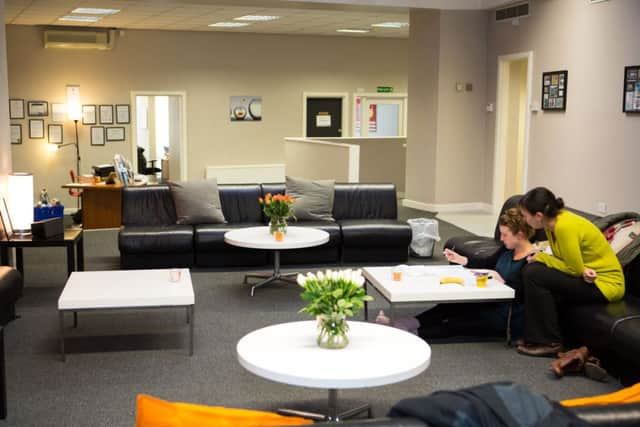

“We work with people who are what we used to call ‘therapeutic addicts’ having had many years on strong painkillers,” says Niamh Cullen, drug and alcohol programme manager at the council.
Calderdale reflects many of the trends nationally, with addiction moving away from the use of heroin to other drugs like alcohol, over-the-counter painkillers like codeine and new psychoactive substances - so-called ‘legal highs’.
“Stopping drugs is the beginning of rebuilding everything else,” says Niamh.
Advertisement
Hide AdAdvertisement
Hide Ad“Our aspiration is for everyone to recover, but we recognise that might not be quick for everybody, and different people will need different things along the way.
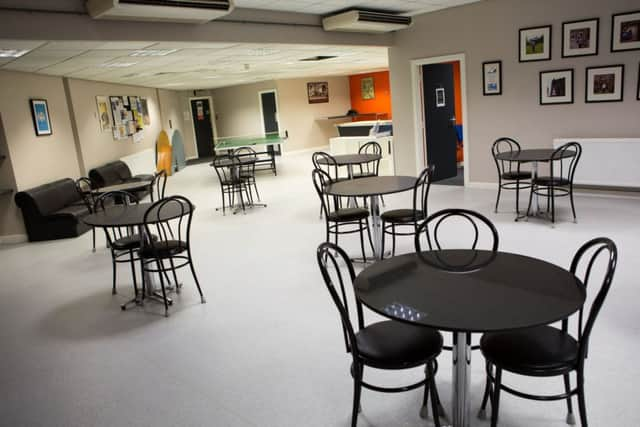

“So you’ve got a whole range of things that can help - you’ve got talking therapies for individuals and groups, you’ve got pharmacological interventions,” she says.
“For most of the people in our programmes, we make sure that we facilitate volunteering opportunities alongside everything.
“We do a lot of work around employment opportunities, finding meaningful ways to use time.
Advertisement
Hide AdAdvertisement
Hide Ad“There’s housing support - there’s no point in being well and having nowhere to live, or living in an environment that’s chaotic when they’re trying to stay well,” she says.
“By keeping people well, reducing their need to offend, we’ve got a better chance of helping.”
The Basement Project gives hope to those suffering addiction
The Basement Project, Halifax, offers support to people seeking recovery from addiction.
Advertisement
Hide AdAdvertisement
Hide AdThe organisation helps people on the road to recovery by offering talking therapies, volunteering opportunities and the chance to gain new skills and qualifications.
“We work with people who are totally disengaged right through to supporting people into employment and becoming contributors again,” says Michelle Foster, chief executive at The Basement Project.
”For us, it’s about building a community. One of the biggest problems used to be that someone with an addiction would see a clinician and then get sent home - they never saw anybody well - the only people they had contact with was medical staff and other addicts.
“For us it’s about building a community that shows people that there is hope - and that’s the bottom line for us,” she says.
Advertisement
Hide AdAdvertisement
Hide AdThe Basement Project works in partnership with the council, the NHS and other charitable organisations and employs 13 staff and has around 25 volunteers.
One of the cornerstones of The Basement Project is its breakfast club which can often act as the organisation’s first contact with people suffering with addiction.
Those visiting the breakfast club are served by volunteers at the project who are themselves in recovery.
“You might get someone come in to our breakfast club who’s just spent the night in a cell and they can see it’s their friend who’s serving them breakfast - they can see that if they can do it, anyone can do it,” says Michelle.
Advertisement
Hide AdAdvertisement
Hide Ad“If you’re being addressed by someone who’s been there, you’re more likely to take on board what’s being said - you can talk more frankly.”
Mark’s story
Mark Cohen, 33, came to The Basement Project over a year ago due to an addiction to a range of stimulants.
“I took anything I could get my hands on - a lot of cocaine, amphetamines, booze, MCAT, ketamine,” says Mark.
“I couldn’t stop - I was chasing that everlasting party that was non-existent really.
Advertisement
Hide AdAdvertisement
Hide Ad“I had nothing left. I came in and had an assessment and was put in supported housing and started following the pre-recovery and abstinence programme.
“I started joining in with fellowship meetings like Narcotics Anonymous and was encouraged to volunteer,” he says.
“I had no confidence when I came in and it’s built my confidence up.”
Mark has been drug-free for over 14 months and is involved in a range of voluntary work and is working towards gaining qualifications.
Advertisement
Hide AdAdvertisement
Hide Ad“I thought putting the drink and drugs down would be boring, but it’s completely not,” says Mark.
“I volunteer at Basement and Probation, and I’m doing my Level 2 in Health and Social Care - it gives me encouragement, it’s a bridge to normal living.
“I was a functioning addict -I had a job, but I put my family through hell,” he says.
“Now I’m in these surroundings and environment, my family are much happier - so it has a knock-on effect.
Advertisement
Hide AdAdvertisement
Hide Ad“I was a massive burden, and it’s really nice that I’ve been able to rebuild these bridges.
“The gift you get when you’re well isn’t like the financial gift like a nice car or stereo, it’s the inner things that count.”
Richard’s story
Richard Douglas, 41, came to The Basement Project due to an addiction to alcohol that would often lead to binges that would last for months.
“I went to my GP on my hands and knees and begged to help me stop drinking,” says Richard.
Advertisement
Hide AdAdvertisement
Hide Ad“I came here an enrolled on pre-recovery and started learning about what addiction is and about myself.
“I had a relapse, and then I threw myself into the recovery,” he says.
“People suggested things I could do and I did them - I went on a recovery walk around Bolton Abbey, I did a meditation course, started volunteering, playing football, started dancing - I just threw myself in.”
Richard volunteers at The Basement Project and on hospital radio, and has also been abstinent for over 14 months.
Advertisement
Hide AdAdvertisement
Hide Ad“You get to a point where there’s literally nothing left to lose - you’re going to lose nothing by trying to get well,” says Richard.
“The Basement Project’s a visible recovery because you’re in a support network with other people who are doing really well and you want a bit of that.
“It’s given me access to a larger world - it’s given me back my confidence, it’s given me self-esteem, it’s made me aware of a lot of things about myself I didn’t really know,” he says.
“It’s opened up a lot of different avenues, a lot of things I’d never thought of before - in March I’m going to learn to become a beekeeper - I never saw that coming!”
Statistics on drugs
Advertisement
Hide AdAdvertisement
Hide Ad402 people were arrested on drug-related offences in Calderdale during 2013-2014.
According to Home Office figures, around one in every 11 (8.6 per cent) of 16 to 59-year-olds used illicit drugs between 2013 and 2014 - around 2.7 million people nationally.
Around one-third of adults have taken drugs at some point during their lifetime.
Around one in every 32 (3.1 per cent) of adults have taken a Class A drug in the last year - around 985,000 people.
Advertisement
Hide AdAdvertisement
Hide AdCannabis was the most commonly used illicit drug last year, with one in every 15 (6.6 per cent) of adults using it last year.
One in every 32 (3.1 per cent) of adults were defined as frequent drug users in 2013 to 2014 (defined as taking an illicit drug more than once a month for 12 months).
The level of drug use has remained relatively stable over the past five years.
According to figures obtained through the Freedom of Information Act, Calderdale Council’s annual spending on public health issues is as follows:
Drug and alcohol misuse - £3.4 million
Sexual health - £2,6 million
Obesity - £880,000
Smoking - £555.000
Physical activity - £296,000
Where to get help
Advertisement
Hide AdAdvertisement
Hide AdIf you need help with addiction, there are a number of services that can help:
The Basement Project, 10 Carlton Street, Halifax - call (01422) 383063 or visit http://basement.sharepoint.com
Calderdale Substance Misuse Service, School House, 56 Hopwood Lane, Halifax - call (01422) 397300
Calderdale in Recovery - visit http://www.calderdaleinrecovery.com
Talk to Frank - call 0300 123 6600 or visit http://www.talktofrank.com
You can also contact your local GP